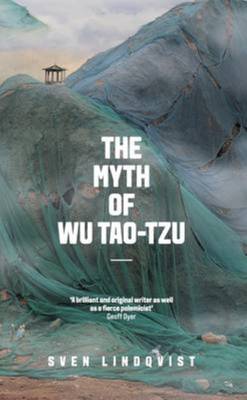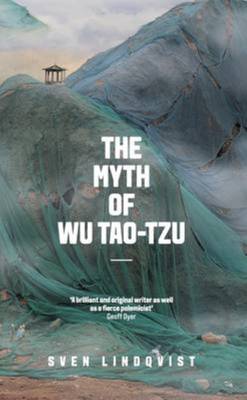
Bedankt voor het vertrouwen het afgelopen jaar! Om jou te bedanken bieden we GRATIS verzending (in België) aan op alles gedurende de hele maand januari.
- Afhalen na 1 uur in een winkel met voorraad
- In januari gratis thuislevering in België
- Ruim aanbod met 7 miljoen producten
Bedankt voor het vertrouwen het afgelopen jaar! Om jou te bedanken bieden we GRATIS verzending (in België) aan op alles gedurende de hele maand januari.
- Afhalen na 1 uur in een winkel met voorraad
- In januari gratis thuislevering in België
- Ruim aanbod met 7 miljoen producten
Zoeken
Omschrijving
During the Tang dynasty, the Chinese artist Wu Tao-tzu was one day standing looking at a mural he had just completed. Suddenly, he clapped his hands and the temple gate opened. He went into his work and the gates closed behind him.' Thus begins Sven Lindqvist's profound meditation on art and its relationship with life, first published in 1967, and a classic in his home country - it has never been out of print. As a young man, Sven Lindqvist was fascinated by the myth of Wu Tao-tzu, and by the possibility of entering a work of art and making it a way of life. He was drawn to artists and writers who shared this vision, especially Hermann Hesse, in his novel Glass Bead Game. Partly inspired by Hesse's work, Lindqvist lived in China for two years, learning classical calligraphy from a master teacher. There he was drawn deeper into the idea of a life of artistic perfectionism and retreat from the world. But when he left China for India and then Afghanistan, and saw the grotesque effects of poverty and extreme inequality, Lindqvist suffered a crisis of confidence and started to question his ideas about complete immersion in art at the expense of a proper engagement with life. The Myth of Wu Tao-tzu takes us on a fascinating journey through a young man's moral awakening and his grappling with profound questions of aesthetics. It contains the bracing moral anger, and poetic, intensely atmospheric travel writing Lindqvist's readers have come to love.
Specificaties
Betrokkenen
- Auteur(s):
- Vertaler(s):
- Uitgeverij:
Inhoud
- Aantal bladzijden:
- 128
- Taal:
- Engels
Eigenschappen
- Productcode (EAN):
- 9781847085221
- Verschijningsdatum:
- 10/01/2014
- Uitvoering:
- Paperback
- Formaat:
- Trade paperback (VS)
- Afmetingen:
- 141 mm x 216 mm
- Gewicht:
- 127 g

Alleen bij Standaard Boekhandel
+ 36 punten op je klantenkaart van Standaard Boekhandel
Beoordelingen
We publiceren alleen reviews die voldoen aan de voorwaarden voor reviews. Bekijk onze voorwaarden voor reviews.









